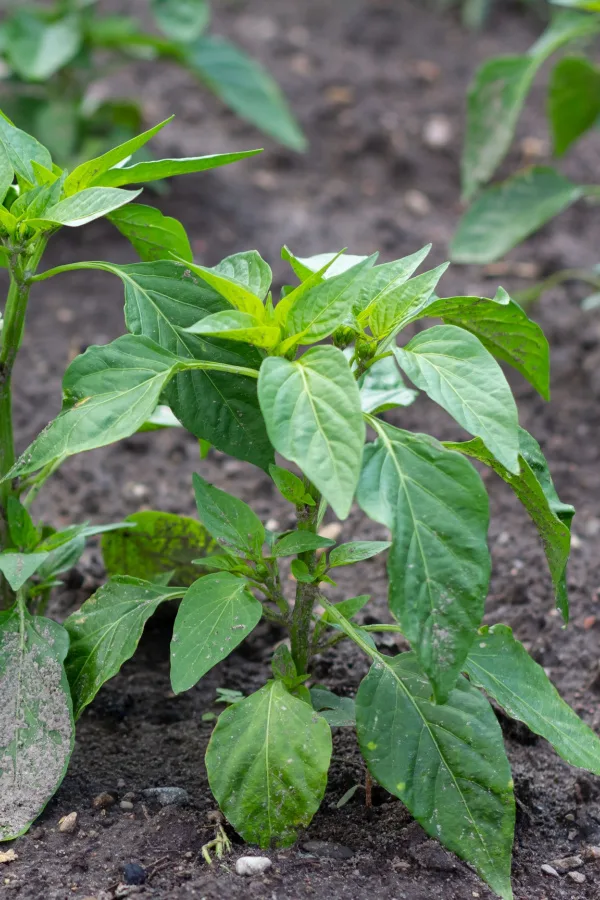Discover the Best Fertilizers for Peppers: Top Picks for Ideal Development
Discover the Best Fertilizers for Peppers: Top Picks for Ideal Development
Blog Article
Organic Vs. Synthetic Fertilizers: Which Is Best for Supporting Healthy And Balanced Pepper Plants?
In the world of supporting healthy pepper plants, the selection in between organic and synthetic plant foods stands as an essential choice with significant implications. While both alternatives goal to supply vital nutrients to support plant development, the subtleties of their influence on the dirt, plant wellness, and the atmosphere spark a discussion that echoes throughout the gardening neighborhood. Comprehending the distinctive benefits and potential challenges of each fertilizer type is crucial for pepper farmers seeking to maximize their yields while maintaining a lasting and eco-conscious strategy.
Benefits of Organic Plant Foods
Organic plant foods use an environmentally-friendly and lasting approach to beneficial pepper plants, providing crucial nutrients without the usage of synthetic chemicals. These all-natural fertilizers are originated from natural sources such as compost, manure, bone dish, and seaweed, advertising dirt health and wellness and biodiversity. Unlike artificial fertilizers, organic alternatives release nutrients slowly, ensuring a consistent and balanced supply for pepper plants to thrive.
One considerable advantage of natural fertilizers is their capability to boost soil structure and water retention. By boosting soil wellness, organic plant foods advertise valuable microbial activity, which helps in nutrient uptake by pepper plants. In addition, natural fertilizers decrease the threat of chemical run-off, safeguarding water resources from pollution and guarding the environment.
Moreover, organic fertilizers contribute to long-lasting dirt fertility by promoting the development of valuable dirt microorganisms. These microorganisms help damage down natural matter, releasing nutrients in a form that is quickly available to pepper plants. best fertilizers for peppers. By promoting a healthy and balanced dirt community, organic fertilizers sustain sustainable pepper cultivation techniques that benefit both plants and the atmosphere
Downsides of Artificial Plant Foods
Artificial plant foods, unlike their natural counterparts, present different drawbacks when utilized to nurture pepper plants, influencing both plant wellness and ecological sustainability. One major drawback of artificial fertilizers is their propensity to leach nutrients from the soil quickly. This quick leaching can lead to nutrient imbalances in the dirt, creating plants to struggle with shortages or toxicities. In addition, synthetic fertilizers can harm useful soil microorganisms, such as earthworms and valuable microorganisms, interrupting the soil ecosystem's equilibrium.
Furthermore, the overuse of artificial fertilizers can add to water air pollution. Excess fertilizers not soaked up by plants can get rid of right into water bodies, causing eutrophication, where algae flowers diminish oxygen levels in the water, damaging water life. Additionally, synthetic fertilizers are normally stemmed from non-renewable resources, such as nonrenewable fuel sources, adding to carbon emissions and ecological degradation throughout their production.
Nutrient Absorption Comparison
When comparing synthetic and organic fertilizers in terms of nutrient absorption, organic fertilizers have the benefit of supplying an extra well balanced and slow-release resource of nutrients. Organic fertilizers consist of a selection of macro and trace elements that are not just beneficial for the plants but likewise advertise healthy and balanced dirt microbial task, which helps in nutrient uptake.
Moreover, natural plant foods improve soil structure and water retention capacity, allowing pepper plants to access nutrients much more efficiently. This improved soil quality facilitates origin growth, making it possible for far better nutrient absorption. Artificial plant foods, although at first increasing plant growth as a result of their high nutrient focus, might impede lasting nutrient absorption by derogatory soil health gradually.
Environmental Effect Factors To Consider

On the other hand, synthetic plant foods, although commonly more focused and right away readily available to plants, can sites have harmful results on the atmosphere otherwise applied appropriately (best fertilizers for peppers). Their manufacturing calls for high power inputs, bring about greenhouse gas emissions and adding to environment adjustment. The overflow of excess synthetic plant foods can infect water resources, leading to eutrophication and harming aquatic ecosystems.
Best Fertilizer Practices for Peppers
When feeding pepper plants, maximizing nutrient uptake and lessening ecological influence are essential considerations. To accomplish this, it is important to follow finest plant food methods tailored to the details demands of pepper plants. One crucial practice is to execute a dirt test prior to applying any fertilizers. This examination can determine the pH level of the soil and determine any kind of nutrient shortages, directing you in picking one of the most appropriate fertilizer solution.
An additional important method is to fertilize pepper plants at the correct time. Typically, peppers profit from receiving fertilizer at planting and then again when they begin to blossom. Over-fertilizing can bring about vitamins and mineral inequalities check over here and harm the plants, so it is crucial to adhere to advised application prices.
Additionally, selecting a balanced fertilizer with an NPK ratio that suits pepper plants' needs is fundamental. Inevitably, combining synthetic and organic plant foods sensibly can aid support healthy pepper plants while decreasing environmental influence.
Verdict

Organic fertilizers use an environmentally-friendly and sustainable technique to beneficial pepper plants, offering important nutrients without the use of synthetic chemicals. Unlike synthetic fertilizers, natural alternatives launch nutrients slowly, making certain a consistent and well balanced supply for pepper plants to grow.
Artificial fertilizers, in contrast to their natural counterparts, pose numerous drawbacks when utilized to nurture pepper plants, impacting both plant health and wellness and environmental sustainability. When comparing natural and synthetic fertilizers in terms of nutrient absorption, organic plant foods have the advantage of giving a much more balanced and slow-release source of nutrients.Furthermore, natural fertilizers improve soil framework and water retention ability, More hints enabling pepper plants to access nutrients a lot more effectively.
Report this page